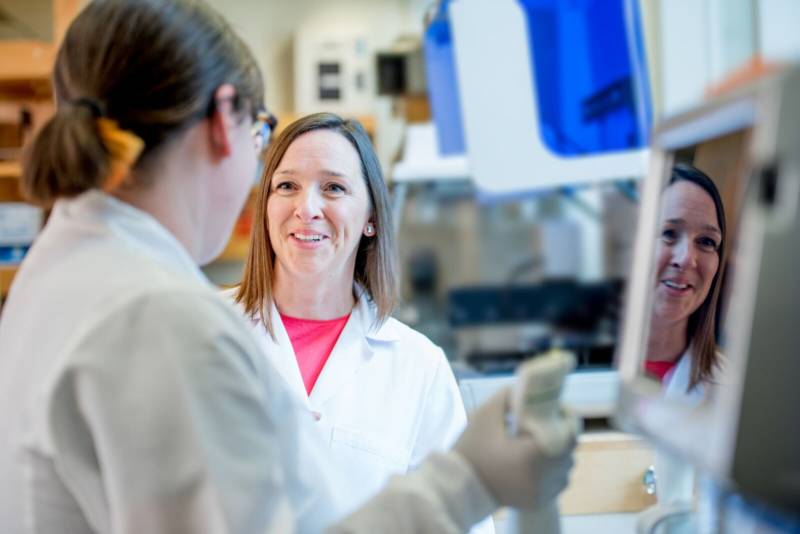Susan Lynch will direct the Benioff Center for Microbiome Medicine at UCSF. She spoke with KQED’s Michelle Wiley about advancements in the field and what the new funding will mean for her work.
The following excerpts have been edited for length and clarity.
Microbes — what are they, and why are they important?
Microbes are among the oldest living life forms on the planet, and they’re incredibly successful. They populate every niche you can imagine across this planet, including humans. And we are, essentially, a super organism. We house a whole range and diversity of microbes within the human body.
You could think of us like a microbial universe. There’s different microbial galaxies that exist in the mouth, in the lower gastrointestinal tract, and on the skin. And these microbes are not quiescent. They interact with each other, and they interact with the host. And they produce a range of bio-active molecules that shape how our cells actually function. And this is why, we’re now beginning to understand, they influence human health.
This field didn’t really exist a couple of decades ago. How has research about the microbiome evolved since you joined the field?
Traditionally we plucked individual microbes out of a sample, and studied them under feast conditions in media — where they could eat as much as they liked — in the lab. And that is not necessarily how these microbes exist in nature.
They are highly social, they interact with each other, they compete with each other, they collaborate with each other. It’s really with the advent of sequencing technologies in the field over the last 10 years that we now have the capacity to examine them, using DNA and genes, and with other platforms like mass spectrometry, to understand the types and diversity of microbes that exist in the human host.
What kinds of illnesses could be helped by understanding microbes better?
The list keeps expanding. But diseases that we can definitively link to perturbations and molecular productivity of microbes, are autism spectrum disorder, allergies and asthma for example, and inflammatory bowel disease.
Speaking of asthma and allergies, some recent work you did looked at gut bacteria and babies a month old. You found that what’s in a baby’s gut can predict whether they are vulnerable to asthma and allergies as they grow up.
We examined a very large cohort of one-month-old babies, and we set out with the idea that they’re not all the same, microbiologically. And different gut microbiomes in distinct subsets of babies may give rise to different types of immune development. And that’s exactly what we found. We found one small group of babies that had a very distinct gut microbiome that were at significantly higher risk of developing allergies and asthma.
We dug down a little deeper, and we now understand some of the microbial products and mechanisms by which these children are at higher risk of developing disease.
What do you need to do to make this promising early research even more useful to the public?

